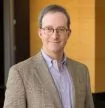On Dec. 9, 2013, a 2-1 panel of the 2nd U.S. Circuit Court of Appeals overturned the convictions of three former General Electric Co. officials, and placed a limit on the government's use of the continuing conspiracy theory to avoid the applicable statute of limitations. United States v. Peter Grimm, et al., Nos. 12-4310-cr, 12-4365-cr, 12-4371-cr (2d Cir. Dec. 9, 2013). The three former GE executives all worked for a unit of the company that acted as a provider for guaranteed investment contracts or "GICs," which enable municipalities to invest proceeds from municipal bonds pending their use of the funds. The government alleged in a 2010 indictment that the executives paid kickbacks to brokers between 1999 and 2004 as part of a scheme to rig the competitive bidding process for GICs by lowering interest rates on the GICs. The executives were convicted of violating the federal conspiracy statute (18 U.S.C. § 371), and they appealed to the 2nd Circuit, arguing that the indictment was barred by the five-year statute of limitations for general conspiracies. To satisfy the statute of limitations, the government had to establish that the conspirators knowingly committed an overt act in furtherance of the conspiracy during the limitations period. The 2nd Circuit disagreed with the government's position that each periodic interest payment made to a municipality pursuant to a GIC was an overt act that continually restarted the conspiracy period. Specifically, the court found that the periodic interest payments were not in furtherance of a conspiracy, but the result of a completed conspiracy.
The court explained that overt acts generally end "when the conspiracy has completed its influence on an otherwise legitimate course of common dealing that remains ongoing for a prolonged time, without measures of concealment, adjustment or any other corrupt intervention by any conspirator." The interest payments were indefinite, made pursuant to an ordinary commercial agreement, and there was no evidence that the payments were criminal in and of themselves. Thus, the interest payments under the GICs did not constitute overt acts that could restart the statute of limitations. Because the government's indictment relied solely on these interest payments to satisfy the statute of limitations, the government's conspiracy claim was time barred and the convictions were overturned. On Jan. 22, 2014, the U.S. Department of Justice filed a petition for rehearing en banc, arguing that the 2nd Circuit panel that issued the decision was in error.
A copy of the decision is available here.
The content of this article is intended to provide a general guide to the subject matter. Specialist advice should be sought about your specific circumstances.




